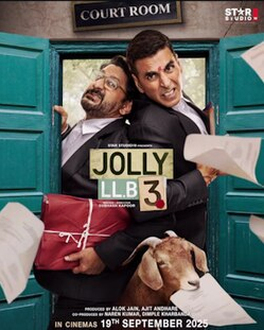In 1981, a film titled ‘Ek Duuje Ke Liye’ was released, marking Kamal Haasan’s debut in mainstream Hindi cinema after having worked extensively in the South Indian film industry. Directed by K. Balachander, the film not only became a superhit at the box office but also received widespread acclaim for its music.
When the film was completed, a distributor initially declined to buy it, fearing financial losses. Producer Laxmikant Prasad faced difficulties and had to distribute the film himself. Initially, the film had modest expectations, so only a limited number of prints were released. However, within a week, the demand for the film skyrocketed, necessitating the production of additional prints. Despite being made on a budget of 10 lakhs, the film grossed more than 10 crores, achieving both commercial success and critical acclaim. ‘Ek Duuje Ke Liye’ received a National Award and three Filmfare Awards. It was released on June 5, 1981. Here are some interesting anecdotes related to the film:
K. Balachander had originally made the film in Telugu as ‘Maro Charitra’ (1978), with Kamal Haasan playing the lead role. The Telugu version received a positive response, leading to the decision to reach the story to Hindi-speaking audiences. The star cast remained largely intact, with Rati Agnihotri replacing Sarita in the lead female role. This marked the Hindi film debut for Kamal Haasan, Rati Agnihotri, Madhavi, and singer S.P. Balasubrahmanyam. Along with these four actors, the film received nominations in a total of 13 categories at the Filmfare Awards, ultimately winning awards for Best Editing, Best Lyricist, and Best Screenplay.
Following the release of ‘Ek Duuje Ke Liye,’ Kamal Haasan rose to stardom overnight and became one of the most popular actors, second only to Amitabh Bachchan. The film’s success was attributed to its captivating music, which received special attention considering the Hindi audience’s fondness for songs. The renowned music composer duo Laxmikant-Pyarelal was entrusted with the responsibility. Balachander desired to have Kamal Haasan’s voice dubbed by S.P. Balasubrahmanyam, as in the Telugu version. However, Laxmikant-Pyarelal initially disagreed, expressing doubt about a “Madras” singer delivering Hindi songs effectively. Balachander argued that since the hero’s character was South Indian, it would be more authentic for him to sing in Hindi with Balasubrahmanyam’s voice. Eventually, S.P. Balasubrahmanyam received the National Award for Best Playback Singer for his contributions to this film.
The film’s music by Laxmikant-Pyarelal was a massive hit, featuring romantic, sad, and fun songs. One of the notable songs from the film is “Mere Jeevan Saathi,” known for its enjoyable lyrics. The song creatively incorporated film titles into its lyrics.
‘Ek Duuje Ke Liye’ showcased several scenes depicting the rebellious nature of the younger generation. One such scene involved Rati’s character’s mother burning Kamal’s photo, to which Rati responded by mixing the ashes into her tea and drinking it out of anger. In an interview, Rati revealed that the photo contained harmful chemicals, and although she agreed to do it for the film’s sake, everyone was concerned about potential health risks. Fortunately, everything turned out fine.
The film garnered immense love from Hindi audiences and quickly achieved blockbuster status within days of its release. However, amidst this success, a significant issue arose. In the climax of the film, both Rati and Kamal’s characters tragically jumped off a mountain, leading to a disturbing trend where some couples in the country attempted suicide, seemingly inspired by the film. In response, several government institutions engaged in discussions with the film’s creators to address this concerning situation. Various meetings were held, involving everyone associated with the film, with the aim of preventing such acts. Rati, due to her young age of 16 at the time of the film’s release, was not allowed to attend these meetings, and her father took charge of handling these matters. The filmmakers and Rati’s family wanted to shield her from the complications and potential negative impact on her mental well-being.
The film’s director, K. Balachander, held great admiration for Raj Kapoor and, upon completing the film, he presented it to Raj Kapoor first. Raj Kapoor, a prominent figure during that era, enjoyed the entire film except for its ending. He desired a happier conclusion and expressed this sentiment to Balachander. However, in an act of rebellion, Balachander stood firm, resembling the rebellious nature of his characters.
Throughout his illustrious 50-year film career, K. Balachander directed over 100 feature films. He passed away at the age of 84 in 2014, leaving behind a significant legacy.
 Had there been no cinema, then this SharmaJiKaLadka would have died long ago. Out of food, sex and cinema this guy would always choose Cinema even if he would die virgin due to starvation.
Had there been no cinema, then this SharmaJiKaLadka would have died long ago. Out of food, sex and cinema this guy would always choose Cinema even if he would die virgin due to starvation.





 2025 Year Roundup OTT Indian Web Series
2025 Year Roundup OTT Indian Web Series 2025 Year Roundup Movies
2025 Year Roundup Movies On the Terrace with Sharma Ji
On the Terrace with Sharma Ji Jolly LLB 3 (2025)
Jolly LLB 3 (2025) Manoj Kumar (1973 – 2025)
Manoj Kumar (1973 – 2025)
Leave a Reply